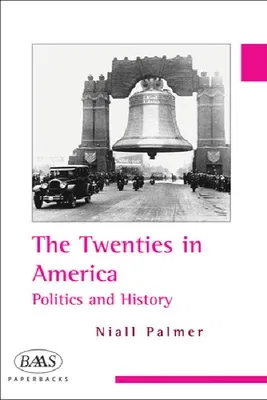Niall Palmer
(Author)The Twenties in America: Politics and HistoryPaperback, 24 April 2006

Qty
1
Turbo
Ships in 2 - 3 days
Only 1 left
Free Delivery
Cash on Delivery
15 Days
Free Returns
Secure Checkout

Part of Series
BAAS Paperbacks
Print Length
208 pages
Language
English
Publisher
Edinburgh University Press
Date Published
24 Apr 2006
ISBN-10
0748620370
ISBN-13
9780748620371
Description
Product Details
Author:
Book Format:
Paperback
Country of Origin:
GB
Date Published:
24 April 2006
Dimensions:
21.34 x
13.97 x
1.27 cm
Genre:
20th Century
ISBN-10:
0748620370
ISBN-13:
9780748620371
Language:
English
Location:
New York
Pages:
208
Publisher:
Series:
Weight:
294.83 gm